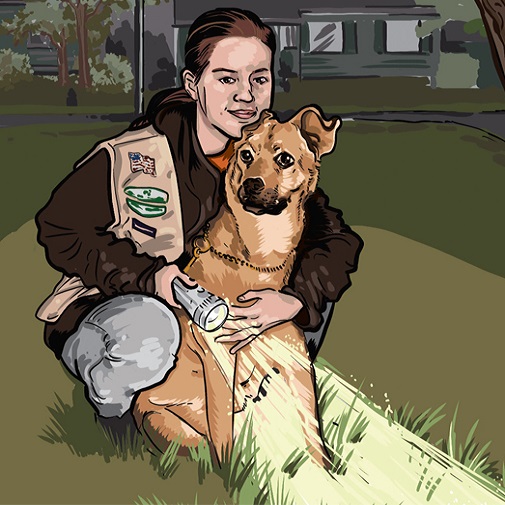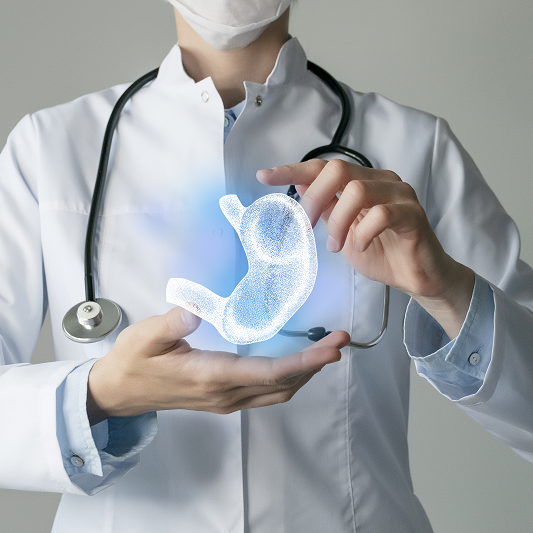How is GERD Diagnosed?
Getting an accurate diagnosis of what is causing your reflux symptoms is the first step in getting long-term relief.
The following diagnostic tools are available at Hackensack Meridian Health locations across New Jersey:
- Bravo® pH test. The Bravo pH test for stomach acid is done through an upper endoscopy. The clinician attaches a small capsule to your esophagus to measure how much acid is flowing from your stomach.
- Esophageal manometry. Manometry is a test that measures how well your esophagus is working using a very thin catheter that is passed through your nose, down your esophagus and into your stomach. The catheter measures the pressure within your esophagus as you swallow.
- EndoFLIP. The latest diagnostic technology, EndoFLIP, is used alongside an upper endoscopy to get a more detailed view of the esophagus. EndoFLIP takes measurements inside and around the esophagus so doctors can accurately diagnose your condition. In addition, if you are a candidate, EndoFLIP may be used in the operating room at one of our advanced surgical centers in New Jersey.
- Radiologic Imaging. Other types of diagnostic procedures for the digestive system include x-rays and CT scans with contrast. Your physician will discuss which type of exam is best for you.
- Upper Endoscopy. An upper endoscopy is a procedure where the physician visually examines your upper digestive system using a long flexible tube with a small camera at the end. This can help identify abnormalities such as hiatal hernias, esophagitis and gastritis that may be contributing to your symptoms.An upper endoscopy is a procedure where the physician visually examines your upper digestive system using a long flexible tube with a small camera at the end. This can help identify abnormalities such as hiatal hernias, esophagitis and gastritis that may be contributing to your symptoms. Our gastroenterology specialists perform this procedure at our multiple hospital locations throughout New Jersey.
Treatment Options for GERD
After the cause and severity of your reflux symptoms have been identified, your provider will design a treatment plan to address your specific diagnosis. Options may include:
- Dietary changes. Your provider may recommend adjusting your diet to avoid certain foods that aggravate your condition.
- Nonprescription medications. These include antacids that neutralize stomach acid and medications that reduce acid production.
- Prescription medications. These include prescription-strength proton pump inhibitors (PPIs) and prescription-strength H-2 blockers.
- Fundoplication. A minimally invasive surgical procedure to wrap the top of your stomach around the lower esophageal sphincter, tightening the muscle and preventing reflux.
Can GERD Cause Other Conditions?
If you’re experiencing symptoms of GERD, it’s important to consult a doctor.
GERD symptoms may be a sign of another condition, such as:
- Esophagitis. Esophagitis is irritation and inflammation in the stomach caused by acid in the esophagus, and can result in ulcers, heartburn, chest pain, bleeding and trouble swallowing.
- Strictures. Sometimes the damaged lining of the esophagus becomes scarred, causing narrowing of the esophagus which can interfere with eating and drinking.
- Eosinophilic esophagitis (EoE). EoE is an immune system disorder that causes allergic reactions in the esophagus to substances that are inhaled or eaten.
- Esophageal cancer. Cancer that begins in the esophagus can develop from Barrett’s esophagus.
- Barrett's esophagus. Barrett's esophagus is caused by a change in the cells in the lining of the esophagus and can occur in some people with long-term GERD. Barrett’s esophagus is a risk factor for cancer of the esophagus.
Additionally, patients with GERD often manage their discomfort with over-the-counter PPIs (proton pump inhibitors) such as Prilosec or Nexium. Although these medications can provide relief, it is often not advisable to take them on a long-term basis. Contact a reflux specialist at one of our Hackensack Meridian Health facilities in New Jersey to learn the best ways to treat GERD.





